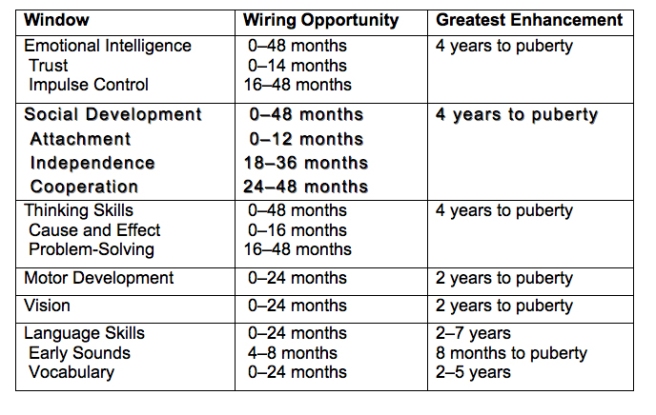More Thoughts on the Evidence
 I am a Gesell Girl (that’s somewhere between the Gilmore Girls and the Golden Girls). Dr. Arnold Gesell observed and documented patterns in the way children develop, showing that all children go through similar and predictable sequences, though which each child moves at his/her individual ease and speed. What it all means is that you can’t ask a child to hold a pencil and print his name if he’s still flailing his arms like one of those inflatable twenty foot balloons that advertise used cars on street corners.
I am a Gesell Girl (that’s somewhere between the Gilmore Girls and the Golden Girls). Dr. Arnold Gesell observed and documented patterns in the way children develop, showing that all children go through similar and predictable sequences, though which each child moves at his/her individual ease and speed. What it all means is that you can’t ask a child to hold a pencil and print his name if he’s still flailing his arms like one of those inflatable twenty foot balloons that advertise used cars on street corners.
I like Gesell’s Six Month Theory, which says that children go through periods of stability and instability that seem to last about six months in time. Because of individualized influences, these phases don’t occur on exact chronological birthdays, but do seem to match with age on a general basis. During stable times, a child feels fairly confident, able, and good about himself and during unstable times, he/she may feel sad, angry, overly sensitive and self-conscious. Behaviors during both stable and unstable times can be both ‘good’ and ugly, but knowing the phases helps understand the behaviors a bit better. Check out this article at http://schoolworkhelper.net/growth-and-development-theory-arnold-gesell-1880-%e2%80%93-1961/. I also like Dr. Pam Schiller’s Windows of Opportunity. It gives a general picture of the ages at which children generally excel at particular types of learning.

Teachers who are not well-informed about the facts of child development (or those who do not accept these facts as accurate and use teaching practices that are not developmentally appropriate) can inhibit the learning process and sometimes do harm to the little learners themselves. Having unrealistic expectations leads to frustration for children and parents.
- Frustrated (under or over stimulated) children have lower self-esteems, are turned off by school, do not behave well and more importantly, do not learn with as much efficiency. The quality of their learning is actually reduced.
- Frustrated parents become rightfully defensive and doubtful when their children come home tired from the pressure of too-high expectations, or bored from the presentation of experiences based on too-low expectations, or when they receive notices of misbehavior or lack of progress that may well be caused by the use of teaching practices that are not developmentally appropriate.
- Frustrated teachers burn out quickly when they must struggle to find ways to teach that do not match appropriate learning and behavioral expectations.
I Believe in Mr. Rogers and Tinker Bell – Years ago I was lucky enough to have met (up close and personal, with dinner and everything) Fred Rogers, one of the greatest early education experts and children’s television icons of our time. I asked him if all of the changes in the world, socially and technologically speaking, called for a change in the way we teach young children. His answer was a big ole Mr. Rogers NO! He said the evidence of child development was hard and fast and teachers should NEVER alter their methods and practices or the philosophy of building early education on the foundation of developmental appropriateness. I’m with Fred.![]()
Knowing the evidence and believing it are two different things. When Tinker Bell dies in the stage show of Peter Pan and Peter begs the audience to clap if they believe in fairies so Tink can come back to life, all of the children and most of the adults in the audience, clap their hearts out – and it always works! Tinker Bell might be imaginary, but If you are one of the sourpusses who doesn’t clap – if you are one of the teachers who does not believe in the proven, natural, wonderful, even magical facts of child development – then please stay away from the Neverland of early education.
their hearts out – and it always works! Tinker Bell might be imaginary, but If you are one of the sourpusses who doesn’t clap – if you are one of the teachers who does not believe in the proven, natural, wonderful, even magical facts of child development – then please stay away from the Neverland of early education.
Next Blog: Great Expectations